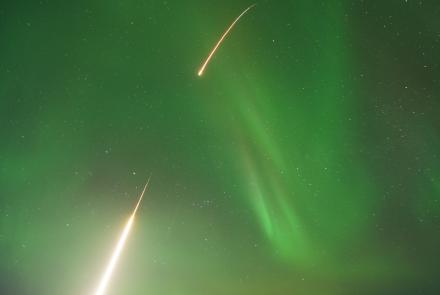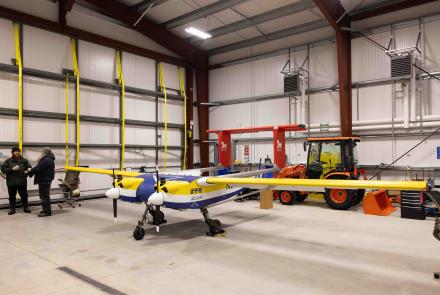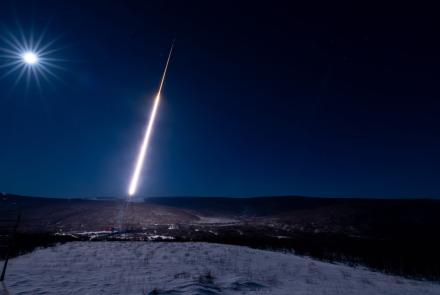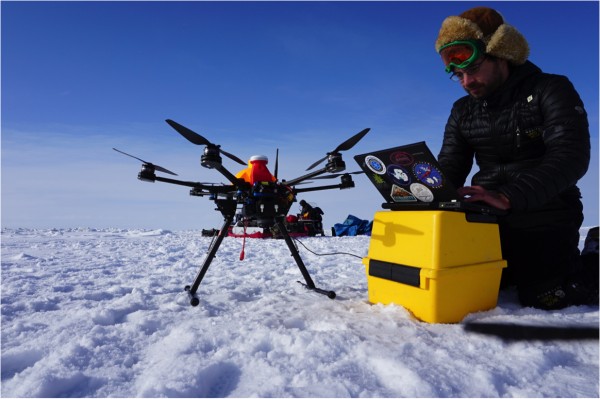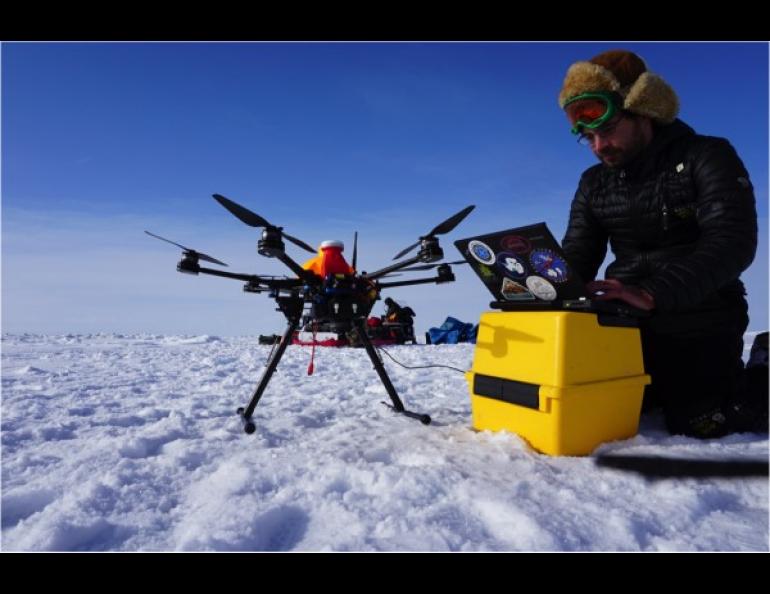
Unmanned aircraft group part of FAA Center of Excellence
The University of Alaska Fairbanks is part of the team selected by the Federal Aviation Administration as a new National Center of Excellence for Unmanned Aircraft Systems.
The Alliance for System Safety of UAS Through Research Excellence, or ASSURE, team is comprised of 13 universities and over 90 industry partners, providing the FAA with access to a team of scientists in the UAS community and coordination of activities to achieve common goals.
The Alaska Center for Unmanned Aircraft Systems Integration, or ACUASI, is the largest and most operationally focused university UAS program in North America. It is part of the University of Alaska Fairbanks Geophysical Institute and is a core partner in the ASSURE team. UAF will conduct research, testing and evaluation of UAS systems and subsystems with the focus on low-altitude operation, operations beyond line of sight and cold weather and extreme climate research and testing.
“I am particularly pleased with this award as it recognizes the experience and expertise UAF has gained in our 14 years of UAS operations,” said Marty Rogers, ACUASI director and vice director of ASSURE. “The UAS Center of Excellence will positively and directly contribute to the research needed to safely integrate unmanned aircraft into the national airspace. As vice director of ASSURE, my role is to support the overall management of the program and to ensure we meet the research goals of the Federal Aviation Administration. Here in Alaska it allows us to not only continue our current research but to expand and grow the program. We take a certain amount of pride in our reputation of successfully ‘doing the hard to do’ in the unmanned aircraft world, and this award will allow us to continue that tradition of success, especially in low-altitude and beyond-line-of-sight efforts.”
The ASSURE team will receive $5 million in federal funding, of which UAF will receive a portion based on the research projects it leads. This funding will be leveraged through partnerships with industry, the government and other academic institutions.
ACUASI also manages the Pan-Pacific UAS Test Range Complex, or PPUTRC, one of six official FAA test sites in the U.S.; oversees U.S. ranges in Alaska, Oregon and Hawaii; and works closely with the FAA on UAS regulatory questions. ACUASI opened an office in Iceland, a PPUTRC partner, in November 2014. This office will support continued testing and evaluation of UAS, focusing on beyond-line-of-sight operations.
ACUASI personnel fly UAS missions more than 150 days per year, testing the capabilities of these diverse systems for everything from wildlife population surveys to search and rescue to locating wildfire hotspots.
Rogers noted that “Alaska relies on aviation and is a perfect test bed for unmanned aircraft operations. We hope this award leads to the expansion of use of unmanned aircraft systems in rapid emergency response as well as UAS commercialization.”
For more information, contact Rogers at 907-322-9913.
SM/5-8-15/282-15
Sue Mitchell, University of Alaska Fairbanks Geophysical Institute, 907-474-5823, sue.mitchell@alaska.edu



